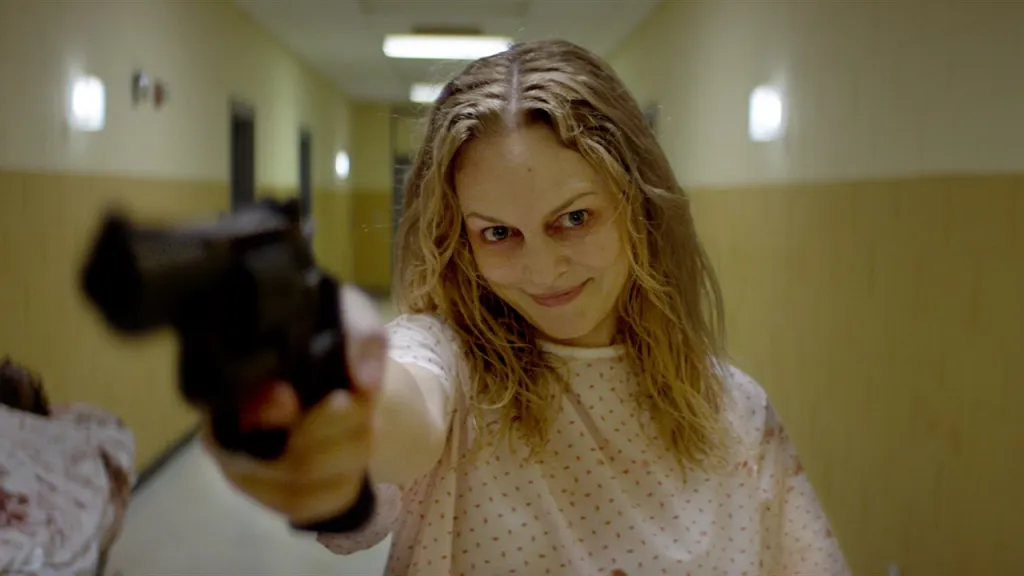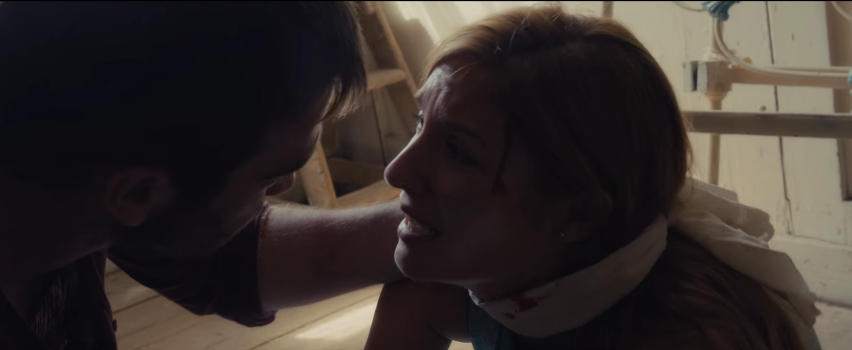Little Bites
by Hope Madden
Set in the “every fabric is patterned” Seventies, Little Bites drops us into one really horrifying relationship.
Widowed mom Mindy (Krsy Fox) has sent her 10-year-old, Alice (Elizabeth Phoenix Caro), to stay with Grandma (Bonnie Aarons, The Nun franchise)—an overbearing, hypercritical shrew. That’s not the problematic relationship, though. Mindy sent Alice away because of the demon living in her basement, the one who rings a dinner bell a few times a day, then takes a couple of bites out of Mindy.
The mythology is interesting if undeveloped, but whatever the reason Agyar (Jon Sklaroff, excellent) came to live off of Mindy’s flesh, it’s a solid and troubling concept. Sklaroff’s weary superiority and dark wit create a fascinatingly nightmarish villain.
It’s a metaphor concerning the life draining sacrifice motherhood can be—something Babadook explored so beautifully and startlingly. It’s a provocative idea executed poorly.
Writer/director Spider One (Rob Zombie’s youngest brother) strings together some memorably disturbing ideas made weirder and better with some (not all) of his dialog. And a slew of veteran actors (Aarons, Barbara Crampton, Heather Langenkamp) strengthens the effort. Chaz Bono (who Executive Produces with his mother) delivers a sweetly bruised performance.
Fox is the weak link. She lacks chemistry with the rest of the cast and struggles mightily with the filmmaker’s more overwrought sections of dialog (any conversation between Mindy and her mother, for example).
At least as problematic is the stiff direction. There’s precious little variety in shot selection, at an hour and 45 minutes, the film is in desperate need of a good trim. Every scene goes on for an awkward length, far longer than the actors are able to maintain any sense of naturalism. Tightening scenes would certainly have made carrying the film an easier task for Fox.
There’s something here, something unseemly and a little tragic. If the filmmaker could have trimmed the fat, Little Bites might have been a pretty tasty horror.










